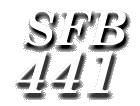
Project B6:
Lexical Change - Polygenesis - Cognitive
Constants: The Human Body
(LexiTypeDia)
|
||
|
||
|
Head
- Prof. Dr. Peter Koch
Romanisches Seminar
Universität Tübingen
Wilhelmstraße 50
72074 Tübingen
Tel. +49/7071/29-74296; Fax +49/7071/29-5617 - e-mail: peter.koch@uni-tuebingen.de
Research team
- staff:
- Paul Gévaudan
- e-mail: paul.gevaudan@uni-tuebingen.de
- Tel.: +0049/7071/29-77160
- Reinhild Steinberg
- e-mail: reinhild.steinberg@uni-tuebingen.de
- Tel.: +0049/7071/29-77160
- advisor:
- PD Dr. Richard Waltereit
- e-mail: richard.waltereit@uni-tuebingen.de
- assistants:
- Isabelle Hiller
- e-mail: isabelle.hiller@uni-tuebingen.de
- Stefan Hofstetter
- e-mail: stefanhofstetter@gmx.de
- Karoline Jäckh
- e-mail: karoline.jaeckh@student.uni-tuebingen.de
- former colleagues:
- Angela Dorn
- Boštjan Dvořák
- Wiltrud Mihatsch
- Ningchuan Zhu
Outline
Project B6 traces the history of nouns denoting body parts in a representative sample of 50 languages of the world. This project is therefore a typological project in the domain of diachronic lexicology. However, we not only systematically analyse the lexical meaning of source and target lexemes, but also morphology, stratification (inherited words vs loanwords), as well as gender, noun class, number etc., i.e. inherent grammatical information. Our aim is to discover cognitive constants of lexical change (i.e. polygenesis), and also genetic, areal and typological pecularities of lexical change. In addition to this rather concrete task we investigate the interpretative steps that allow us to find clear criteria for the identification of polygenesis in a large array of diverse diachronic lexical data. Along with the qualitative and quantitative evaluation of our data, we aim to investigate what factors cause polygenesis.
B6 is related with the dictionary project DECOLAR (= Dictionnaire étymologique et cognitif des langues romanes - L'être humain et son environnement) located at the Romance Department in Tübingen and founded by Prof. Dr. Andreas Blank (University of Marburg) and Prof. Dr. P. Koch (University of Tübingen). It has been financed by the DFG since November 1997.
Publications
Workshop Lexical Data and Universals of Semantic Change, Tübingen, Dec. 7th and 8th 2001
An Onomasiological Database for Diachronic Lexicology
The database of the project is crucial for the collection and organisation of the data mainly extracted from dictionaries. Here are some examples taken from the database that illustrate the structure of the input screen. In addition to the evaluation and interpretation of the data by the research team, the database will be published as a CD-ROM and/or on the Web.
Wiltrud Mihatsch and Angela Dorn, last modified: september, 13th, 2004 by Frank Allmendinger.
